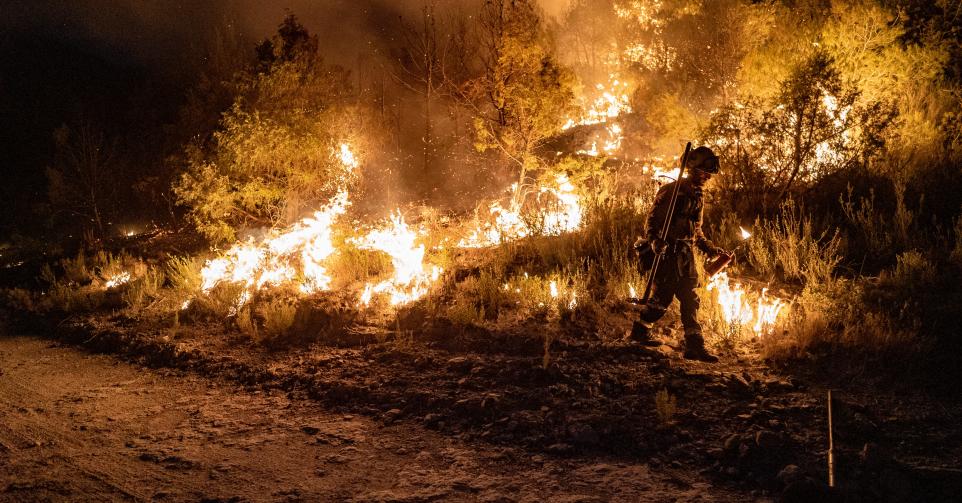Temperatures are soaring across Europe as a high-pressure area slowly moves hot air north across the region. Belgium's Ministry of Foreign Affairs asks tourists to remain "vigilant" and follow the instructions of local authorities. So far, it hasn't received a request for assistance, despite the situation across Europe.
Several areas in Portugal have been on fire since last week, with almost 250 flares reported on Friday. The majority of the fires have been north of Porto, while Lousã, in the middle of the country, hit record levels at 46.3 degrees.
At least 238 people have died from the heat over the past week, according to Portuguese authorities.
France has seen raging fires in Gironde near Bordeaux, with thousand of people evacuated. Over 10,000 hectares of land have been devoured by flames since last week and 14,000 people were evacuated. 15 departments across the country are now on red heat alert.
Firefighters in Spain were able to stabilise a wildfire that consumed 2,000 hectares of wood in the south region of Andalusia. Around 3,ooo people were evacuated as a blaze that started on Friday in the Mijas mountain range inland spread to the southern city Malaga. Some 2,000 have since returned home. Holiday makers were evacuated from Costa del Sol. Fires also flared up in Galicia and Castilla y León.
In Italy, sky-high temperatures have happened simultaneously with the country's worst drought in 70 years. Italy's Po river, which flows from the Alps to the Adriatic Sea, is drying up. The hard hit government has declared a state of emergency in some of the country's northern regions.
Claiming compensation
Tourists from Belgium who want compensation will have better luck with a travel operator than individually. In Le Soir, Jean-Philippe Ducart, lawyer and spokesperson for the consumer association Test Achats, maintains that tourists can benefit from alternatives through their travel operator, but that dealing directly with an individual about a rental cottage is more complicated.
"The answer is to be found in the general conditions of the service provider, if they exist," said Ducart.
In Gironde in France, closures were mandated by state services, and it would not be possible not to comply, in the case of force majeure (unforeseeable circumstances that prevent someone from fulfilling a contract). In such cases, the travel sector is forced to relocate their customers or find different solutions.
Related News
- Belgian rail scraps over 30 trains due to extreme heat on Tuesday
- Belgium's ozone and heatwave plan activated in response to rising temperatures
- France forest fires continue to devastate natural region near Bordeaux
"In situations of force majeure, we apply all the necessary flexibility," said Florence Bruyère of the tour operator TUI.
The situation on site and following the instructions of local authorities and the Ministry of Foreign Affairs are key, according to Ducart.
"My recommendation is to always read the contract first. In the event of an incident, it is best to contact the service provider as soon as possible."

